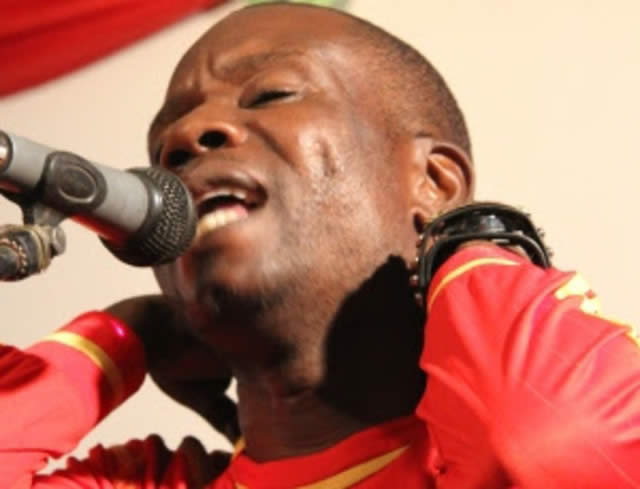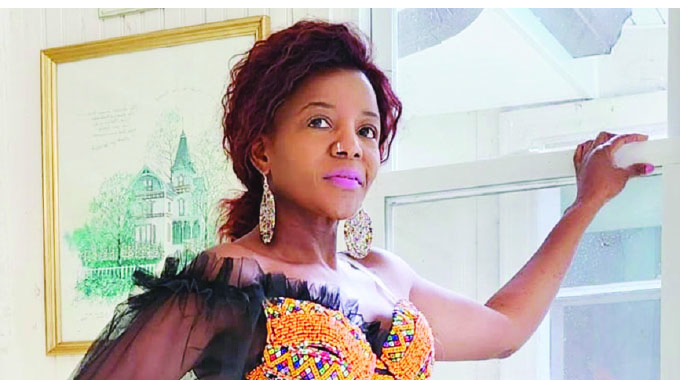Dembo remembered

has been dead for 15 years, his fans still marvel at his artistic excellence, that remains unmatched despite the emergence of hundreds of musicians in the country.
His lyrics, fused with powerful instrumentation, have remained fresh, outliving him and his Barura Express.
Dembo’s music has transcended generation, and his popularity has continued to grow, not only among those who grew up when his music was the staple diet, but even among the “Born Free,” whose generation appear to be awe-truck by his lyrical mastery.
This can be attested by the number of urban groovers who have to date done remixes of some of Dembo’s hit songs.
Female crooner Cindy Munyavi last year released a rendition of Dembo’s classics — “Chengeto” — while a number of other urban groovers have worked on remixes featuring his music.
During his short but fruitful career, Dembo distinguished himself as a guitarist of acute precision and a poet who was meticulous in the use of the Shona language.
Although he had a rich discography, whose themes centred mainly on love, poverty and social ills, his best album was “Chitekete”.
“Chitekete” was probably the first and only album to spawn a song good enough to be played at the 1996 Miss World beauty pageant, held in Namibia, confirming that Dembo’s music did indeed cut across language and cultural barriers.
Yet despite his achievements, he remained very humble.
He was camera-shy and he did not like his face to be all over the place — a reason why he never made more than two videos from his large discography.
Dembovara, real name Kwangwari Gwaindepi, was born on February 6, 1959, in Chivi, Masvingo province.
However, Leonard Dembo’s early childhood is not well documented.
However, from his relatives, Leonard Dembo is believed to have grown up without his father, an experience he later on reflected in his song writing, particularly in such songs as “Nhamo Moto” and “Nhamo Iya Ndakura Nayo”.
He attended primary school initially in Buhera, and later in Bulawayo, and also Chembira School, Harare. He never saw the inside of a secondary school. On completing primary school he returned to Bulawayo in search of work.
It is believed that Dembo was keen on singing from as early as nine years when he was first a shepherd-boy and later.
He was largely inspired by the success of such other musicians such as Jonah Moyo and the Chimbetu Brothers.
Dembo broke into big time music career in 1983 when he was a member of the Spiders, the group that released “Venenzia”, a great hit at the time.
Dembo’s singing career
After failing to make it in Bulawayo, Dembo moved to Harare where in 1982 he joined an outfit known as the Outsiders.
Here he was quickly identified as a talented young guitarist as he used to play the lead guitar. He even broke the charts with his early hit “Dambudzo” and “Manga Majaira Matsotsi”, the later song which he released under the name of a band known as Five Notes.
The Barura Express
Due to some disagreements over partnership laws and band management, Leonard Dembo quickly broke ranks with his colleagues in the Outsiders/Five Notes outfit.
This was precipitated by his success in his first album, “Mai Vane Vana Vavo” (1984) and a single hit, “Venenzia”.
He teamed up with some friends to form the Barura Express in 1985.
Despite the widely attributed meaning of this name to “Nonstop beats”, Dembo’s childhood friends and especially his young brother believes that The name “Barura” could have been inspired from the mountain in Buhera called Barura Mountain, since his mother hailed from that area.
From the time Leonard Dembo took charge of his new outfit, he never looked back. In fact, from the year 1985, Dembo had been releasing hit after hit, beginning with “Murombo” (Poor Man). This track appealed to most young men of the time as it addressed the question of poor bachelors who expect to get married soon.
Other tracks included “Chidhidhi”, “Kugaro Roja” and so many other singles.
His first album was “Amai Nevana Vavo “ (1984).Others soon followed.
These include “Nhamo Moto” (1986), “Kuziva Mbuya Huudzwa” (1987), “Sharai” (1987), “Kukura Kwedu” (1988), “Ruva Rashe” (1989), “Kukura Hakutani” (1990, which was a 12-inch disc), “Chitekete” (1991), “Tinokumbira Kurara-ma/Madhiri” (1992), “Mazano” (1993), “Kutinya Marimba” (1993), “Nzungu Ndamenya” (1994),
“Pawpaw” (1994), “Shiri Yakangwara” (1995) and “Babamunini” (1996).
Dembo grew in popularity during the late 80s, but his breakthrough was the 1991 hit “Chitekete”, which became the most popular song in Zimbabwe since 1980.
The song was written years earlier when Dembo was a cattle herder, and it is about a young man who desperately wishes to get married to a beautiful lady.
The track seemed to have introduced a new style of playing the rhythm guitar at the time. Its popularity can also be attributed to its heavy use of Shona proverbs and poetic stanzas. It sold more than 100 000 copies in the first three months.
During this time, it became a popular wedding song.
After the success of “Chitekete”, Dembo stuck with the spare, guitar band sound, and several more hits followed.
“If a sound comes into my head three times then I know it’s a record,” he said.
Dembo and his band perfected what is known as Zimbabwe rumba, consisting of hard-hitting rhythms and melodic arrangements for two electric guitars and bass guitar.
Below is a poem recited by one of Dembo’s fans and dedicated to his work:
Dembo the Legend
By Reginald Ruwende
Enshrined in our shrines are the remains of an icon
Archived in our archives are the works of a man
An outstanding outsider from the ‘outsiders’ outfit
A maestro who mastered the art of local Rhumba
Indeed a legend who made a name with a unique blend of sungura
Churning out powerful vibes that stood the test of time
Undoubtedly the best lead guitarist ever to emerge
That legendary talking and ululating lead guitar
The unparalleled wizardry of the legend himself
The powerful bassline, the secret to everlasting beats
The telepathic combination of the bass and thundering drums
Something out of this world
The piercing rhythm guitar, the icing on the cake “Barura Express” or is it “Bvarura Express”
An appropriate name for a crew brandishing non-stop hits
Who can ever forget the blockbuster “Chitekete”
The official wedding song, the national anthem
A party would not one be without it
In taverns, pubs, taxis, malls, market places, everywhere — “Chitekete rocked”
Before the euphoria died down, a blazing 12-inch was unleashed
“Gire” and “Zii-zii”, piercing songs that demonstrated guitar strumming excellence
Then came the gem-packed album “Tinokumbira Kurarama”
Dembo at his best, proving that he was in a class of his own
And another masterpiece “Handingazvigone” was released
An instant hit that rocked the airwaves
Other hits of yesteryear complete a career ardoned with so much glitter and glamour
April 9, 1996, the legend was untimely stolen away
What a loss, what a bereavement it was
Numerous copycats soon sprouted around
In vain, they tried to emulate the legend
Nevertheless a testimony of how great, how inspirational the man was
Fifteen years today, the legacy lives on
Who will ever surpass the standards of the legend
Whose star will ever shine to eclipse his
Dembo, I wish u had lived to this day to hear my adulation
Hopefully, wherever u are, I did put a smile on your face
RIP Leonard Tazvivinga “Musorowenyoka” Dembo
Your contribution to local music will always be treasured in our hearts.





Comments